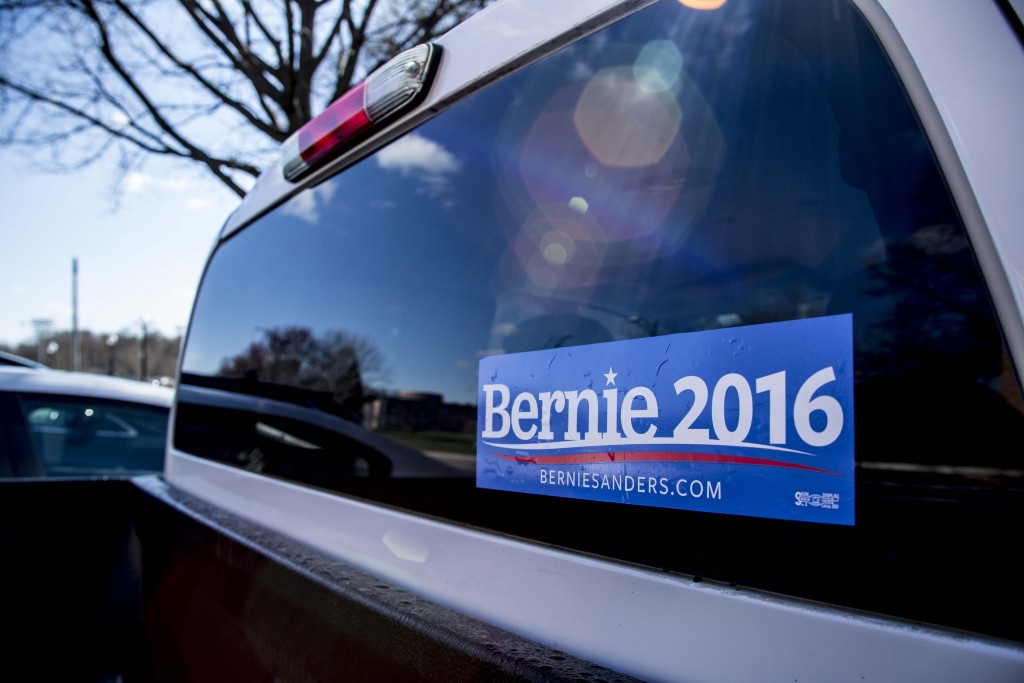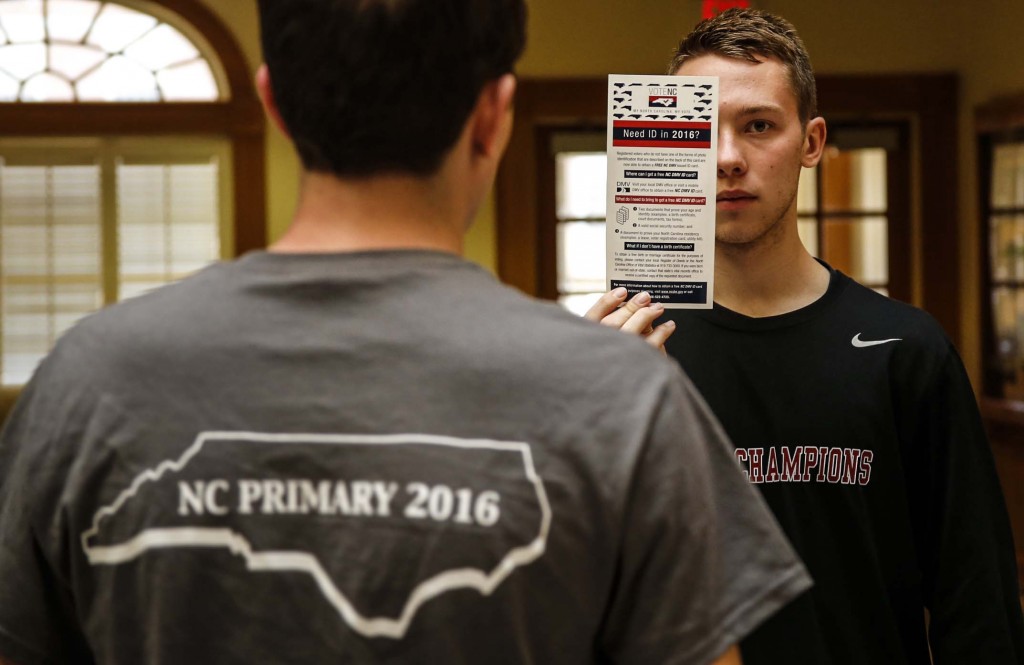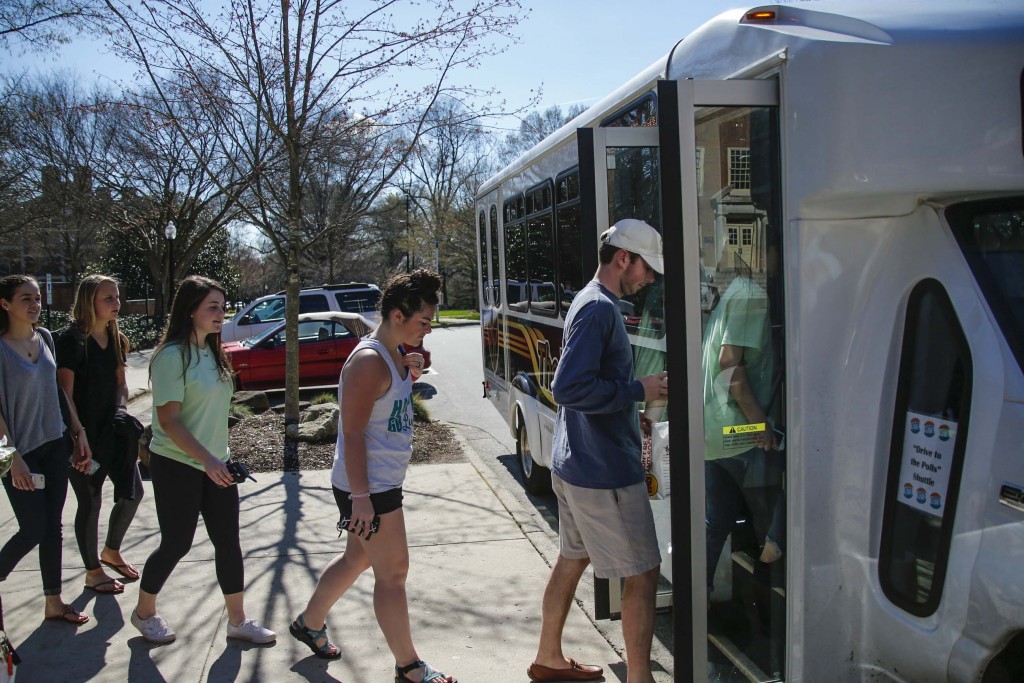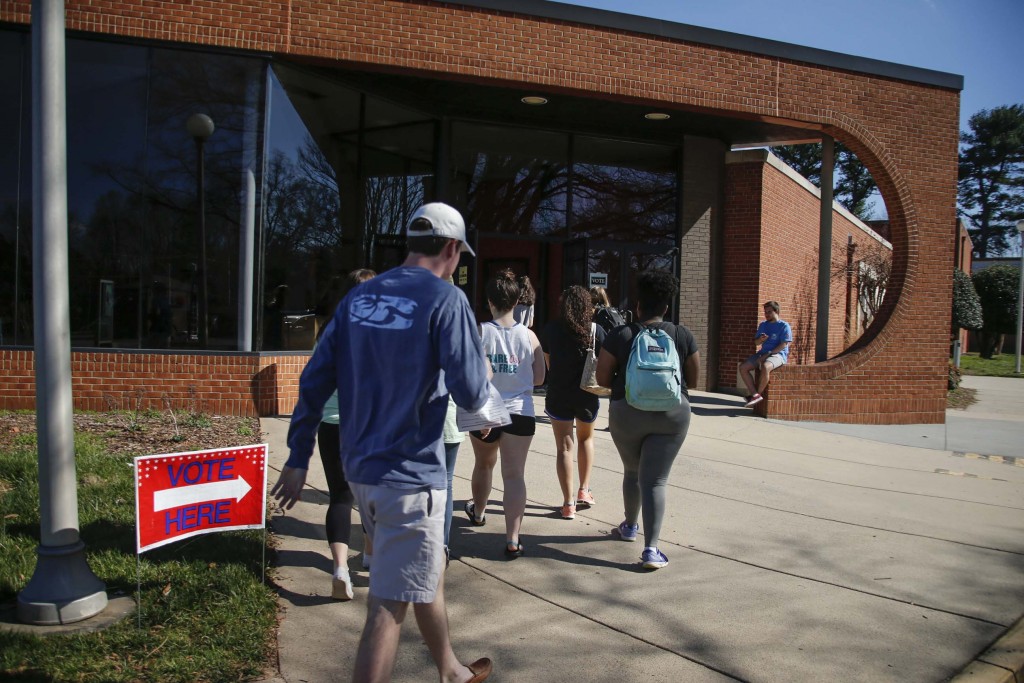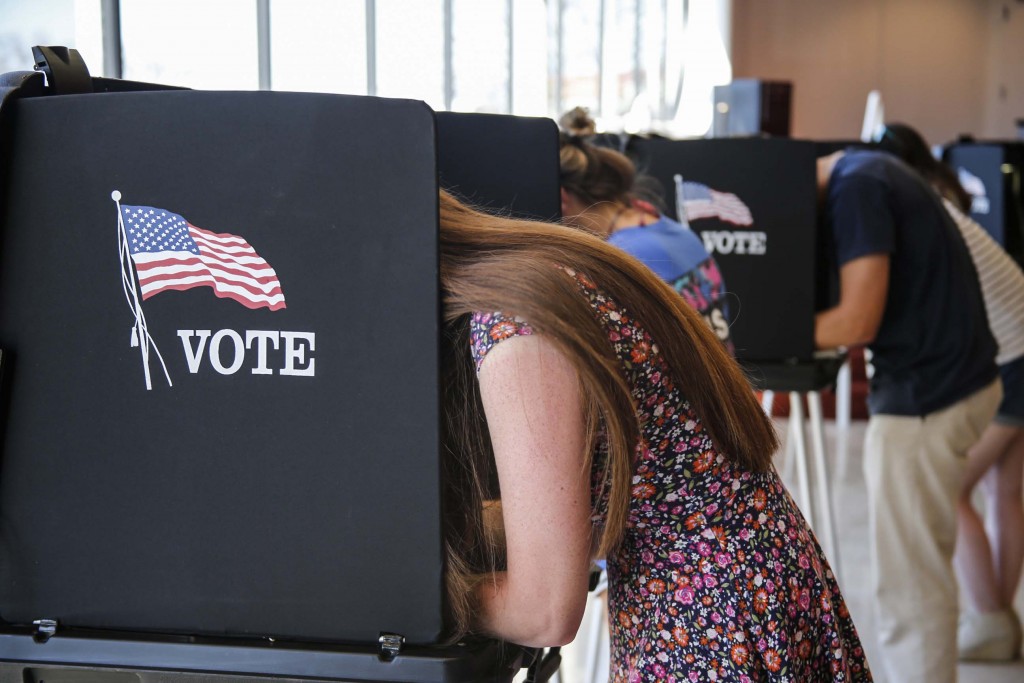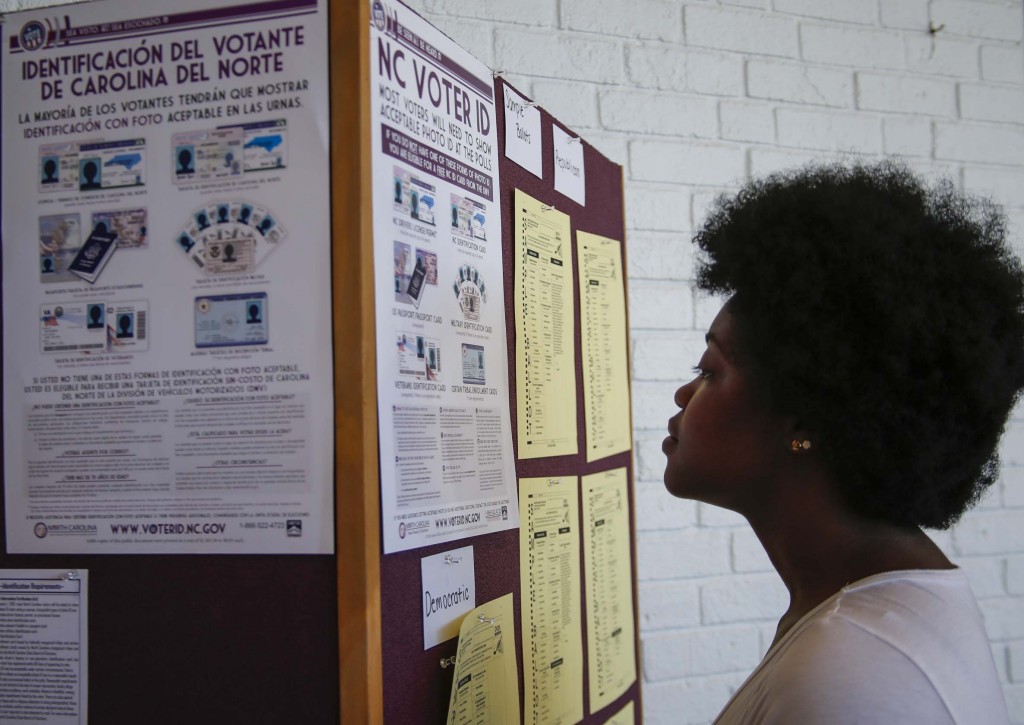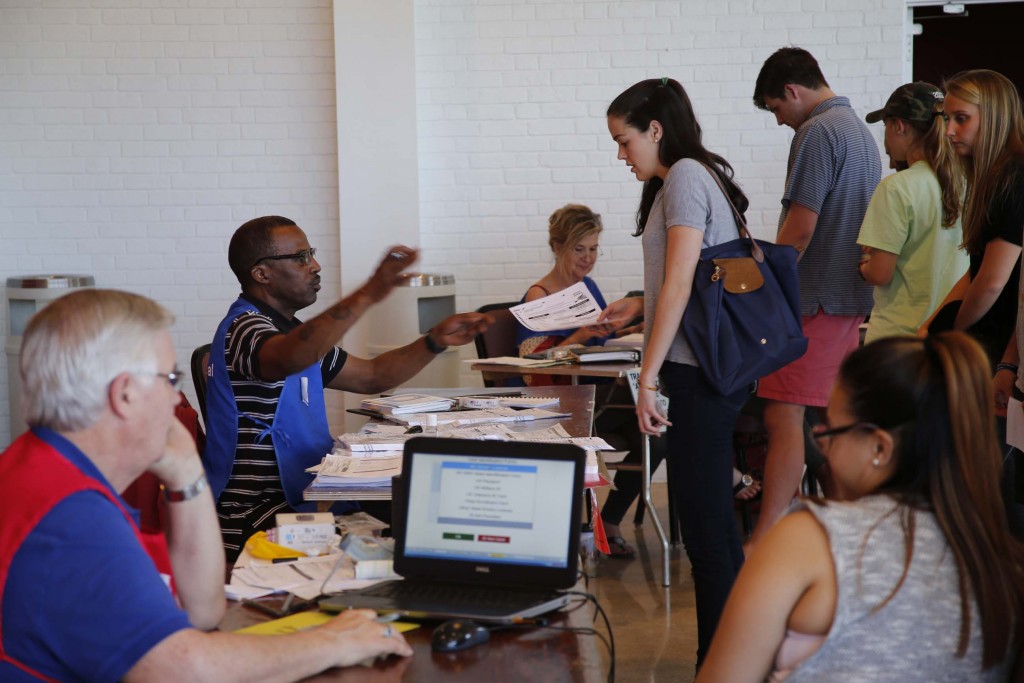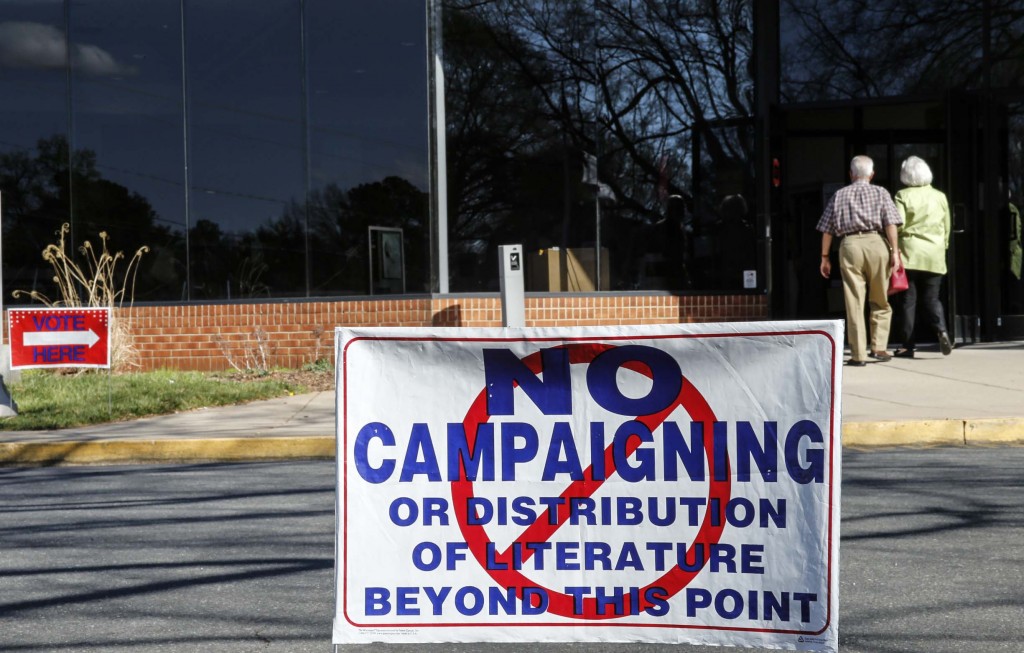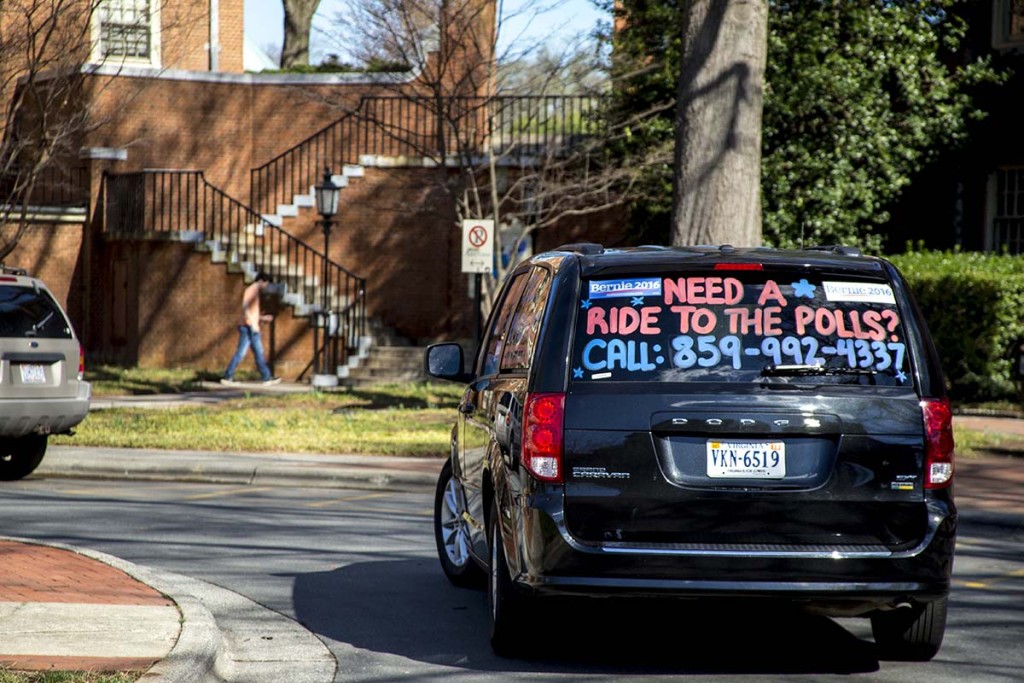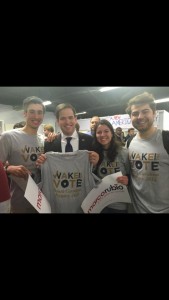Forsyth County Voter Turnout
By Emily Eisert, David Blue, Bennett Brownlow, Anna Conte and Annabel Love
Forsyth County had strong early voting turnout during this year’s North Carolina presidential primary election with few problems from voter identification issues detected before noon today, according to the county’s new elections director.
Final voter turnout numbers were not available by deadline. Results from only 70 of the 101 precincts in Forsyth County were recorded.
Many people paid special attention to the North Carolina presidential primary election because of the state’s new voter ID law. The new law, which went into effect in January 2016, requires voters to have a government-issued photo ID. The new law also cut the early voting period from 17 days to 10 days and eliminated same-day registration and a program to preregister high school students.
“There has been some confusion today as to what is acceptable for identification, but no major issues,” said Tim Tsuji, the new director of the Forsyth County Board of Elections.
Some polling stations ran out of ballots earlier today and needed new ones delivered. One polling station, at Pfafftown Christian, was still open 40 minutes after it was supposed to close at 7:30 p.m. with over 100 voters waiting in line. The number of provisional ballots given for issues regarding voter ID was not known by deadline.
The voter ID law’s shortened early voting period was projected to have an effect on voter turnout. Many argued that the new law promotes racial discrimination, as racial minorities more often use same-day registration and early voting and are less likely to have the proper photo ID. The law was contested in court earlier this year. As no ruling was reached, the primary followed the new law.
During this election’s new 10-day early voting period, there were 22,960 voters in Forsyth County out of 240,000 registered voters in the county and 6.5 million in the state. In the 2012 primary, there were 15,157 early voters over the previous 17-day period.
“We definitely had an increase in this year’s primary. Although, it is like comparing apples to oranges. Each primary had a different time, different amount of days open, different number of locations for early voting,” said Tsuji.
Tsuji also added that of the 56 provisional ballots during early voting this election, only 18 were given to individuals lacking acceptable ID. The majority of provisional ballots were issued to those who wanted to vote for a candidate outside of their registered party and did not change their affiliation by the February 19 deadline.
The new voter ID law was also predicted to have an effect on students – high school students lost preregistration programs and out-of-state college students now have to provide a North Carolina photo ID or a valid passport.
Wake Forest University students were provided a free shuttle service from campus to the polls among other programs to promote voting. The shuttle service, co-sponsored by College Democrats and College Republicans ran twice an hour from 10 a.m. to 7 p.m. today.
“Wake the Vote,” a civic learning and democratic engagement course at Wake Forest, held a conference today on the new voter ID law, which is currently being sued by the NAACP of North Carolina and the Department of Justice, and its possible effects were discussed.
Russell Gross, Wake Forest junior, who voted yesterday at the Arts Council Theater precinct, said he was not affected by the new law because he is a North Carolina native with a North Carolina driver’s license. However, he expressed his opposition to the law, saying it is “making it more difficult for people to vote and that democracy and voting is what America is all about.”
McKenzie Zeigler, a Wake Forest Senior from California, voted in North Carolina because it is a swing state and experienced some push back from the new voter ID law. According to Zeigler, the law is oppressive and an infringement on voters’ rights.

